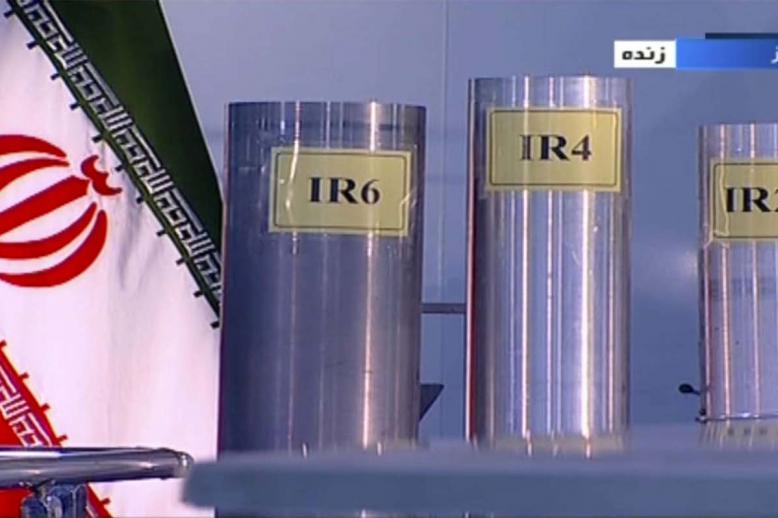The return of high commissioners an early sign of Biden’s hubris
At the height of its power, the British empire instituted political and administrative divisions to oversee areas of influence and colonies based on a unique form of administrative logic.
It created the position of high commissioner. A half-way position between minister and local governor, but on the ground, it meant a lot.
This is what people interested in the history of the modern Middle East know: The British resident administrator in the Gulf and then high commissioner in Iraq, Sir Percy Cox is the one who had the upper hand in shaping our world today.
With the help the eastern secretary (the Khatun-Lady), Gertrude Bell, he later in the Cairo conference drew the map of the countries of the region and the distribution of power among them.
Sir Percy built the architecture of modern Iraq on the ruins of the Ottoman states after the first world war.
The importance of the high commissioner’s mission is not that it is one of a military or political leader. All the administrators of the colonies were tasked with that mission. As long as they had the military strength of the occupation soldiers and the budget, things could go their way.
The high commissioner’s cleverness is that without all of these assets, Sir Percy came up with the idea of establishing national rule in Iraq under the British mandate, then of establishing the Iraqi army.
Why should Britain rule Iraq directly when it could rule via an Iraqi official administration and native military forces? The result is what matters.
The mandate is there and imposes on others what it wants done. And practically without any cost, in money or men. A British stroke of genius.
The British resident in the Gulf or the high commissioner in Iraq were the top political and diplomatic interlocutors for the region. They were subordinates to the government of India (Simla), and the government of India was accountable to the British government.
The British Foreign Office and of course the prime minister’s office delegated their powers to the government of India and the government of India delegated matters to the high commissioner. Gulf and Iraqi affairs became an administrative detail in one or another colonial administration.
The era of the mandate and the eras of colonialism and protectorates ended, and nation states were established after the second world war and the end of the British imperial role, first militarily and then because of moral pressure and liberation movements.
The chapters of the high commissioners were closed and the history of Sir Percy Cox and the Khatun Bell was archived at the British Foreign Office and the Royal Geographical Society.
Superpowers changed their behaviour in dealing with modern states. Their foreign ministers became active travelers wandering around the world, persuading and lobbying.
Fast forward until the present day. The idea of high commissioners comes to life again. It is a kind of new American political creativity. And the moment was not lost to the old British political ingenuity.
Washington today scatters its high “commissioners” around the region. A commissioner to Iran, a commissioner to Yemen and soon a commissioner to the Horn of Africa. Britain has created a position of commissioner to the Gulf region.
The administration of new US President Joe Biden is armed with the mistakes of the direct diplomacy pursued by his predecessor, Donald Trump.
This convenience of dealing directly with the White House is deemed unacceptable. It reduced the level of countries’ dealings to two levels: From the president to the minister, and from the minister to the commissioner.
The door of the White House is closed, and the US State Department’s door passes through a gatekeeper called the commissioner.
Once again the commissioner has an important role to play. His role is now unclear and not limited by any constraints. He can do and say whatever he wants. He is not an ambassador, nor a minister, nor does he have to submit to the scrutiny of the US Congress.
But the importance is greater if we realise that Washington, which used to impose its desired fait accompli with military forces and direct political and diplomatic capabilities, now just wants to tell the concerned countries what to do and expect them to abide by what they are told.
Is this a new phase of diplomacy or is it a form of restored imperial arrogance? Maybe there is something of both.
Almost everything is ready for the new US administration. The reason is simple. It is the third round of former President Barack Obama’s administration. Everyone knows his place and everyone is preparing for his role.
The new administration did its homework early before entering the White House. The day it entered, it started to act.
Take Robert Malley, the US envoy to Iran (the envoy is a variation of the commissioner). It gives you the impression that he has returned from leave and continues to work on the file after a hiatus.
He proceeded from the first moment and made his contacts with senior officials in the region, informing them what they should expect from this administration now.
Then he and his administration turned to Europe and Iran because he believed that everything would take place there, and he only had to inform the region of the negotiation steps when necessary, and then abide by them without sitting at their table.
The US envoy to Yemen, Timothy Lenderking, specialises in the Arabian Peninsula. His choice has many messages. He knows the area, but he was always a junior officer at Foggy Bottom.
He has never worked as an ambassador to a country and the highest position he had attained was that of deputy assistant secretary of state for the Middle East. Now, he is deciding what should happen in Yemen.
If the leaks are true, Donald Booth will be an American envoy to the Horn of Africa. Once again, there are messages from the appointment of a former US ambassador to a number of non-Arab African countries as delegate to the Horn of Africa.
The most important message is that the security file is resolved by Washington with the leaders of the region, and that there is no room for interventions from Arab countries seeking influence in the Horn of Africa.
To be fair to the Biden administration, the role of the high commissioner or special envoy began late in the era of former President Donald Trump. The position of deputy UN delegate to Libya was held by US diplomat Stephanie Williams. After European, Turkish and Arab interference and controversies, she waved the US magic wand.
She told the Libyan politicians to go to Geneva and return with a presidential council and a prime minister, or else…
A scene reminiscent of former Yugoslavia’s leaders being led to the US base at Dayton in the 1990s under the supervision of then-US Assistant Secretary of State Richard Holbrooke.
Given the choice between signing the agreement or a war crime tribunal, they understood the message and signed. We expect a prosperous future for Williams in the coming days.
The drawing of borders and ceilings in dealings between the new administration and the region continues. The silence of the phone calls that have not taken place between Biden and the leaders of the region is deafening.
The new equation that the Biden administration wants to establish is therefore simple: We think, decide and inform you of what to implement. You only have to be responsive and invest in our political projects to fix what you have corrupted in the region.
Pressures precede talking about anything, and human rights files and wars are always present. They are waved with the least diplomatic touch.
The word hubris has been very worn out since the end of the colonial era in our region. It was used by Arab nationalists, patriots and Islamists. They used it so many times that the term lost its meaning. But I cannot find another description to refer to what is happening with the new US administration in dealing with the region and its issues. Of course, the least befitting characterisation could be the word diplomacy.







